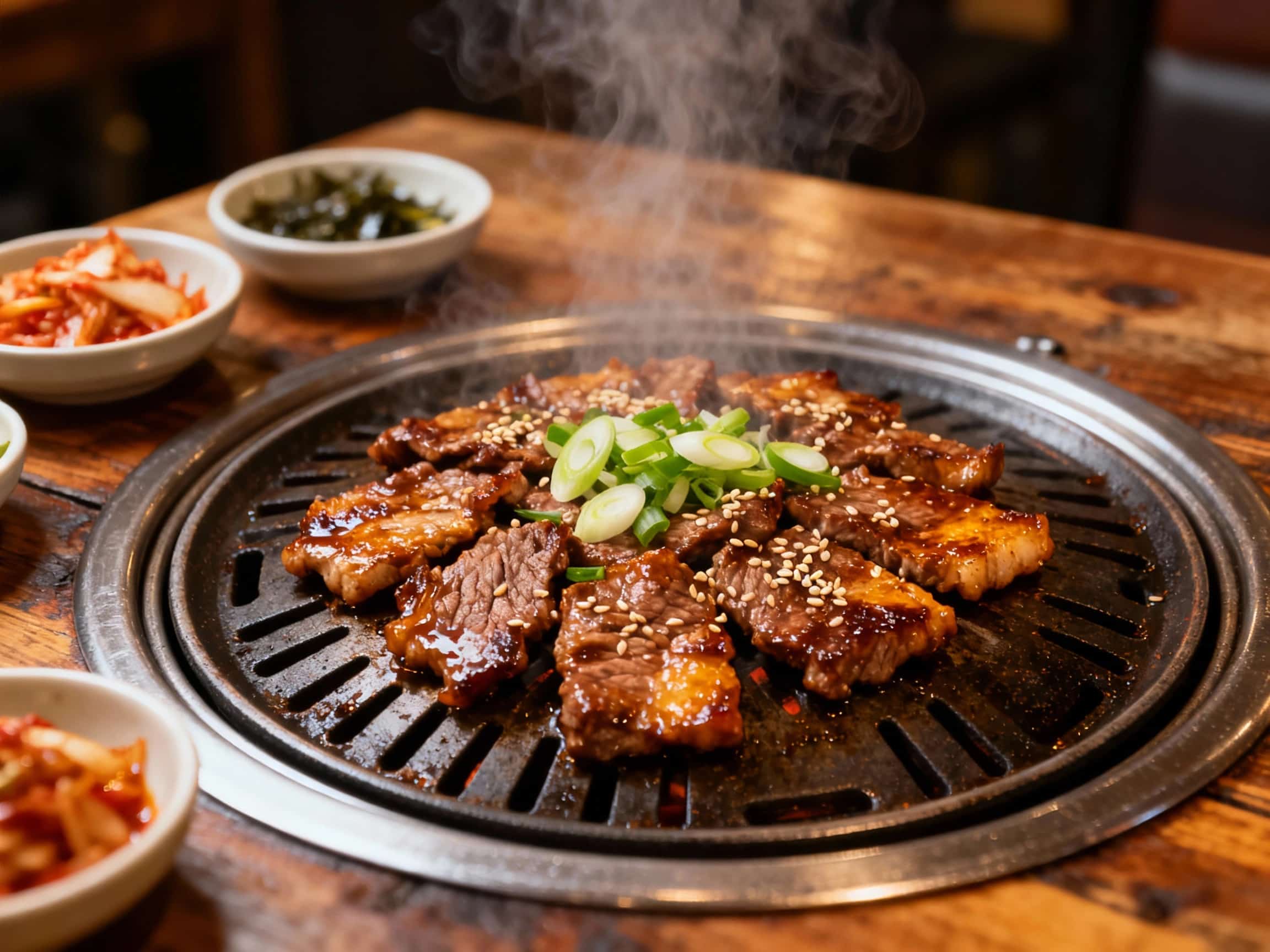
Bulgogi
불고기
- Country
- Korea
- Region
- Not specified
- Recipes
- 0 Recipes
Origins & Characteristics of Bulgogi
Bulgogi, meaning "fire meat," is one of Korea's most iconic dishes, a testament to centuries of culinary evolution. Its origins can be traced back to the Goguryeo dynasty (37 BC - 668 AD) as a dish called maekjeok, skewered grilled meat. During the Joseon dynasty (1392-1897), it transformed into neobiani, thin slices of beef marinated and grilled, primarily for the royal court and nobility. The modern form of Bulgogi, with its characteristic sweet and savory soy sauce-based marinade, began to take shape in the early 20th century, becoming more accessible to the common populace. After the Korean War (1950-1953), Bulgogi gained immense popularity as a restorative and celebratory dish, evolving into the table-grilled communal experience known today. The dish signifies hospitality and shared joy in Korean culture, often prepared for special occasions or family gatherings. Its widespread appeal led to its adoption in many Korean diaspora communities, becoming a gateway dish for introducing Korean cuisine to the world. Chefs like Baek Jong-won have popularized various home-style bulgogi recipes, while prestigious restaurants continue to innovate with premium cuts and cooking methods. Bulgogi's cultural significance is deep, representing both historical tradition and modern Korean identity, a delicious bridge between the past and present, enjoyed by millions globally.
History of Bulgogi
'Neobiani', a refined version of grilled meat for royalty, becomes prominent during the Joseon dynasty.
The term 'Bulgogi' becomes widely used, referring to the modern marinated, grilled meat preparation.
Post-Korean War, Bulgogi's popularity surges as a celebratory and comforting dish for the general public.
Bulgogi begins its global ascent, gaining recognition in various international cuisines.
Modern interpretations and global fusions of Bulgogi become widespread in contemporary culinary scenes.
Classic Bulgogi recipes and variations
0 recipes foundWe'll add related recipes for this dish soon.